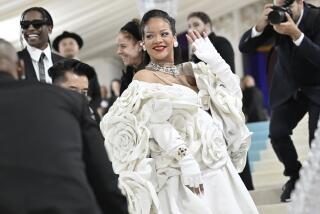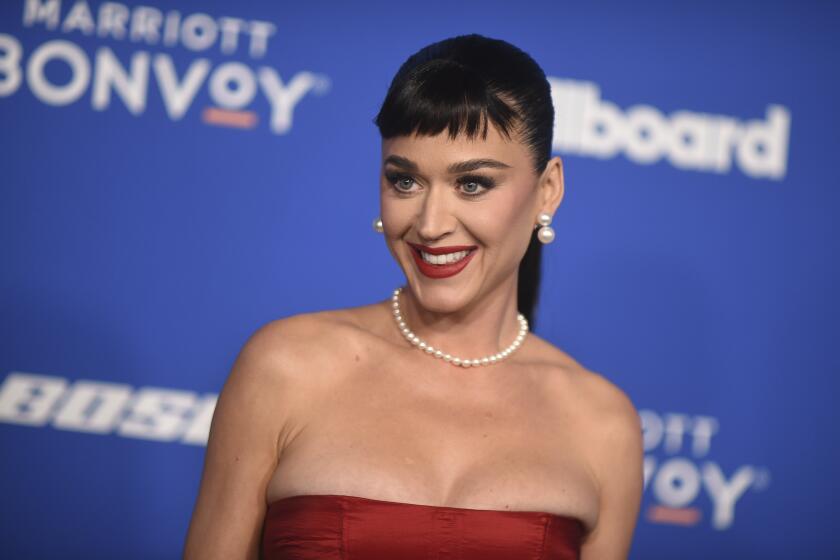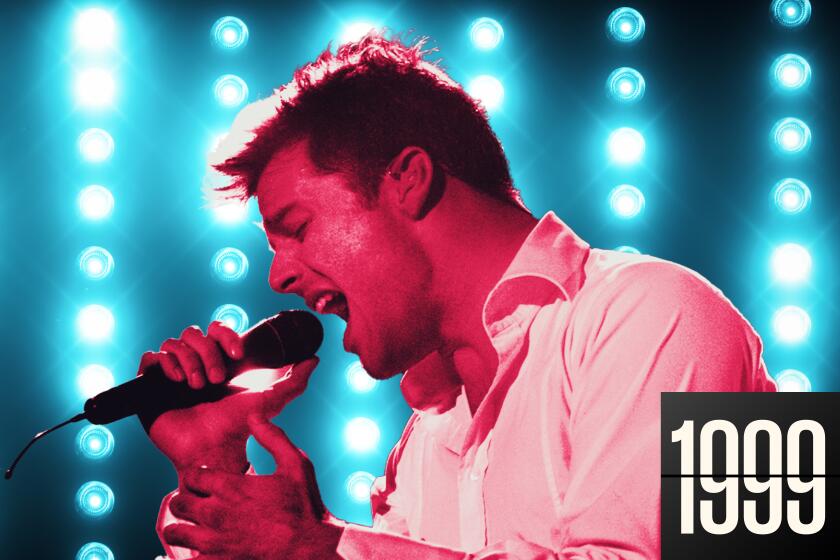Culture being thrown out with the security bathwater
Truth, goes the old saying, is the first casualty of war. But in America’s battle with terrorism, culture may be running a close second.
The collateral damage is falling hardest on musicians and other performing artists, many of them from the seven countries -- Cuba, Syria, Iran, Iraq, Sudan, Libya and North Korea -- identified as “state sponsors of terrorism” under the Enhanced Border Security and Visa Reform Act enacted last spring.
The new law requires visa applicants from those countries to undergo extensive background checks. Men between 15 and 45 are especially subject to scrutiny. But what began as a legitimate effort to tighten security after the Sept. 11 attacks is backfiring on many foreign artists and creating a bureaucratic backlog for the FBI and CIA.
Caught in the middle are U.S. presenters and agents, who’ve already lost tens of thousands of dollars marketing tours that had to be canceled or postponed. The other losers, American audiences, aren’t just missing out on a chic night’s entertainment. What they’re really missing is an enriching and challenging exposure to other cultures’ viewpoints and sensibilities, their ideas about what makes life spiritual, sensual, righteous or otherwise worth living.
“This goes well beyond money,” says Scott Southard, a Massachusetts booking agent and producer who recently had to abort a U.S. tour of the Afro-Cuban All Stars, an offshoot of the popular Buena Vista Social Club. The 20-city tour included a Nov. 14 date at UCLA’s Royce Hall.
Where’s the worst fallout? Try Southern California. First, Syria’s Whirling Dervishes of Damascus, devotees of the ecstatic devotional dance genre grounded in Muslim mysticism, were forced to drop out of the L.A. World Festival of Sacred Music in September, after being told their visas wouldn’t get processed in time.
Chucho Valdes, the virtuoso Cuban jazz pianist, couldn’t get to Los Angeles on Sept. 18 to accept his award for best pop instrumental album at the Latin Grammy Awards because the new restrictions held up his and 21 other Cuban artists’ visa applications. Ironically, Valdes and several compatriots took part in a concert to raise funds for relatives of police and firefighters killed in the Sept. 11 attacks.
Then Googoosh, the Toronto-based Iranian pop singer, regarded by many Iranians as an emblem of cultural resistance to that country’s repressive theocracy, had to pull out of a Sept. 28 Staples Center concert. Two years ago, this legendary fiftysomething chanteuse moved a sold-out Great Western Forum crowd with a show whose potent political subtext equaled its star wattage.
No credit for past visas
Cuban artists have been especially vulnerable to the new restrictions. Among those Angelenos won’t be seeing this fall are Pablo Milanes, founding godfather of the nueva trova popular song movement of the late ‘60s, and the Afro-Cuban All Stars. Never mind that the latter have already toured the U.S. half a dozen times since 1999, along with Europe, Asia and Australia, without sabotaging anything except the notion that great art can’t survive, and thrive, within intellectually ossified regimes like Fidel Castro’s.
From Carnegie Hall to the Carmel Bach Festival to private nightclubs, shows are being scrapped and performers simply not booked. Among those reportedly ensnared have been a Yugoslav classical pianist and a harpist from that well-known terrorist cell, Norway. No wonder presenters like David Sefton, the British-born director of UCLA Performing Arts, hardly know whether to cry or guffaw.
“It’s not funny, but there’s a kind of dark side to it that you just have to laugh at in the end,” Sefton says. While the government’s “instinct for security is obviously entirely understandable,” he believes that the new regulations are being applied without regard to an individual artist’s personal politics or past behavior.
“It’s not just Cuba,” Sefton says. “We’ve had difficulties bringing in Swiss, Swedish, Danish, Japanese [artists]. I think there’s been a knock-on effect of all the extra [paper] work, which means the INS is just grinding much slower these days.”
Disturbingly, the cultural drawbridge is being raised at a time when at least one home-grown performer has been censured for expressing mildly contrarian political views. The notoriously cranky alt-country troubadour Steve Earle has been raked over the op-ed coals for penning “John Walker’s Blues,” an imaginary interior monologue by the so-called “American Taliban” that’s plainly in the tradition of classic folk songs about less-than-savory characters.
Two weeks ago, President Bush invoked the Taft-Hartley Act to end the lockout at West Coast ports, so as to ensure the uninterrupted flow of sneakers, toys and consumer electronics from China. But the free flow of foreign-made art and ideas is just as important to the American Way as the free flow of cheap DVD players.
War will scrap changes
Cultural breakthroughs such as that of Buena Vista Social Club three years ago have the power to redraw our mental maps of the world. They bring remote corners of the planet into focus, pry open closed regimes (like the Soviet Union during glasnost) and diminish the odds of our being blindsided by whatever the rest of the world is thinking and feeling. There’s more potential danger lurking in one of those truck-sized cargo containers down at the port than in some middle-aged Cuban’s carry-on congas.
Think this stuff only matters to a handful of Armani-clad audio-trendies? Think again. Longtime KCRW-FM program host Tom Schnabel remembers when King Sunny Ade brought Afro-pop to the Hollywood Palladium in February 1983. “I think every musician in Los Angeles was there,” says Schnabel, evoking the ripple effects of seeing a live human being performing the music they love. What other world-beat visionaries are currently tangled up in INS red tape?
State Department officials say they’re taking steps to speed up visa processing, but some performance presenters remain skeptical and are forming coalitions to lobby for swifter changes. The wildcard is the looming U.S.-Iraq face-off. “If we are in fact going to be going to war, our efforts are like spinning our wheels. Because as much as we want to open the doors, war will close our doors,” says Bill Martinez, a San Francisco attorney who specializes in helping Cuban artists get visas.
Let’s hope these prophesies are misplaced. Because, through no clandestine motives of their own, art and culture are the best undercover operatives that an open-minded society like the United States can have. The more frequent-flier miles they rack up, the better for everything we value.
Reed Johnson can be reached at reed.johnson@latimes.com.
More to Read
The biggest entertainment stories
Get our big stories about Hollywood, film, television, music, arts, culture and more right in your inbox as soon as they publish.
You may occasionally receive promotional content from the Los Angeles Times.







